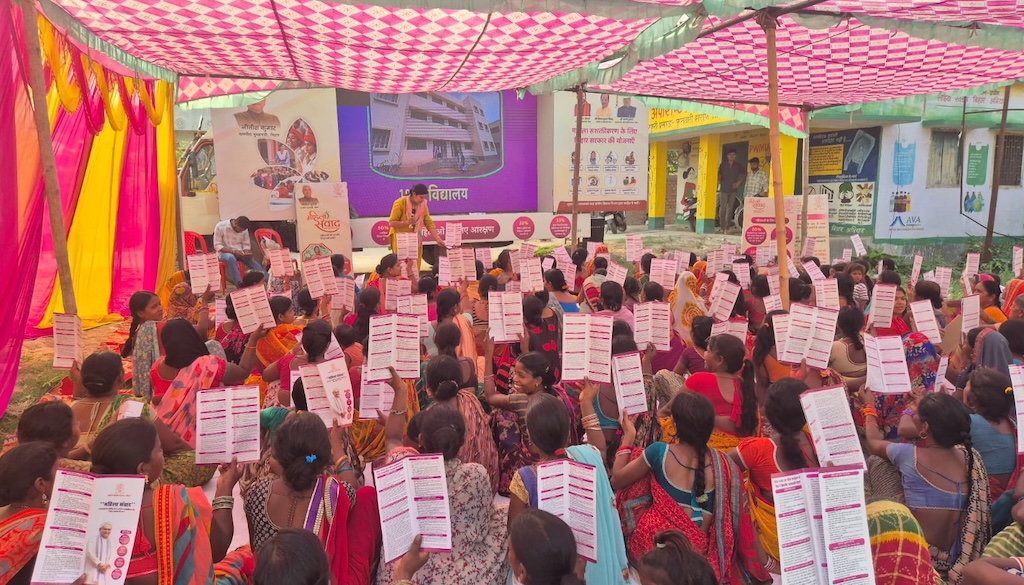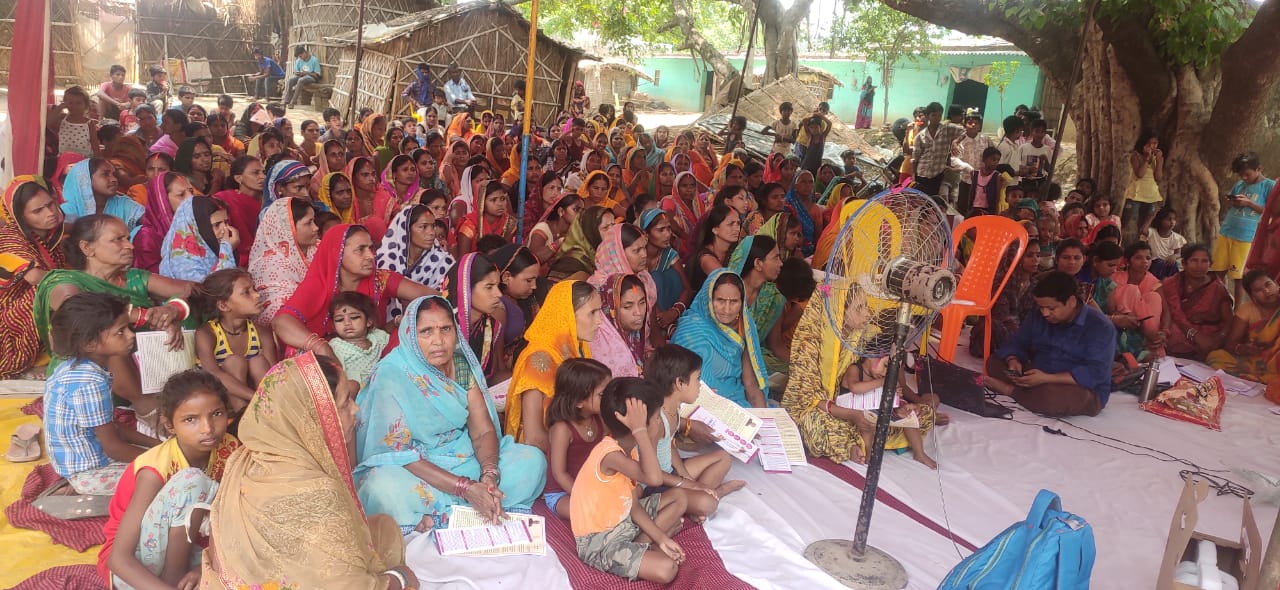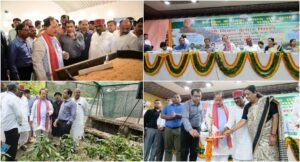1 Month Of Mahila Samvad, 1 Collective Demand: Change

Patna: As Mahila Samvad completed its 30th day on Saturday, women across Bihar continued to gather in large numbers to voice their local priorities, everyday struggles and bold suggestions for change. From demands for safer schools and better pensions to calls for water supply and public transport, the programme has become a state-wide platform for listening to women at the last mile.
Across districts like Gopalganj, Jamui, Madhepura, Kishanganj and Munger, women called for concrete action on recurring issues: clean water, roads, toilets, electricity, housing, healthcare, hostels, employment and education. Several raised concerns about broken pipelines, lack of streetlights and rising dropout rates due to distance and safety.
In many locations, women highlighted gaps in health infrastructure and asked for fully staffed primary health centres and mobile medical vans. Demands for hostels, public libraries, community buildings and village-level livelihood hubs were also noted.

Younger participants urged the government to expand access to digital learning, raise scholarships and support career counselling. Women engaged in home-based industries sought permanent markets, credit access and training.
“I want to be a teacher, but we don’t have a library in our area,” said Lakshmi Kumari from Pratappur village, Lakhisarai. “If I had access to more books, I could study better. I hope this changes for the girls in my village,” she added.
Sindhu Devi from Vishnu JEEVIKA SHG in Jamui said, “I used to roll ‘bidis’, but the smoke affected my health. Now I am looking for a better source of income, maybe a local job or training. We need options here.”
Rubita Sah from Piprithan, Kishanganj, demanded regular check-ups and nutrition awareness. “Just one session a month would make a difference,” she said.
The last 30 days have shown that rural women are ready to engage with policies, not just benefit from them. Every request shared during Mahila Samvad is being documented and forwarded to the concerned departments through a digital tracking system. As the programme continues, the goal remains simple: make women’s voices count in everyday governance.





